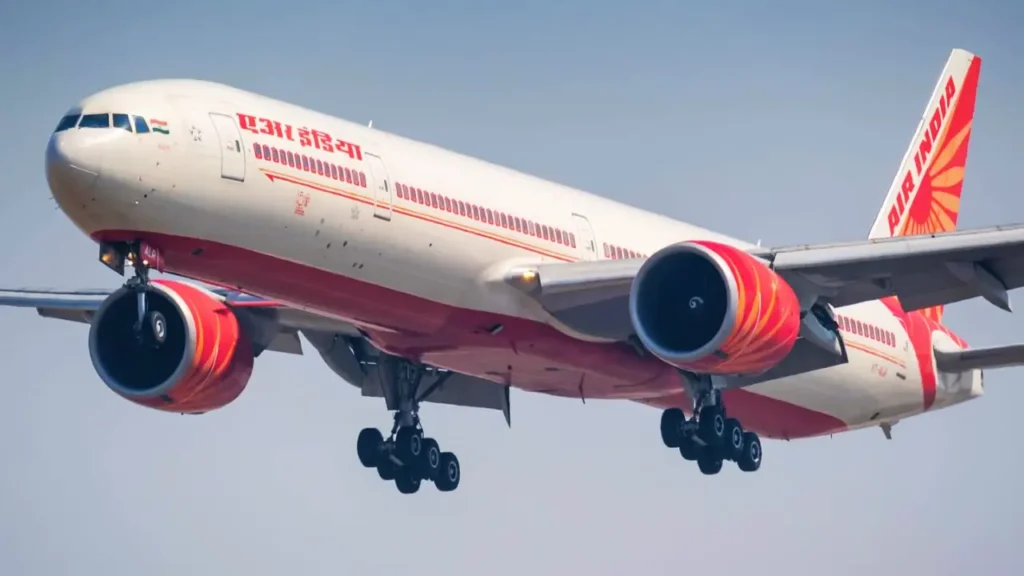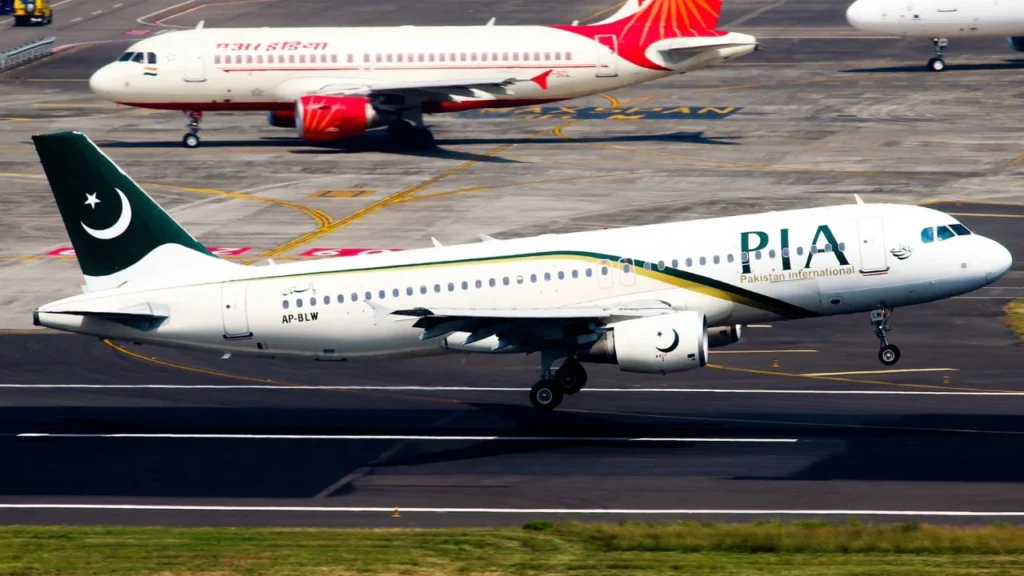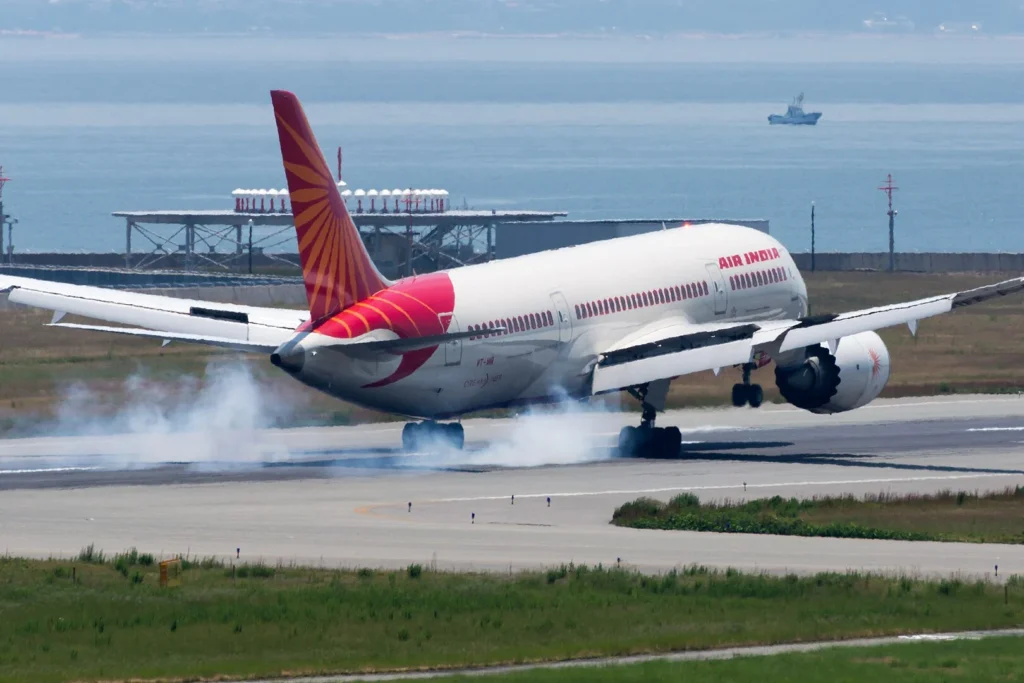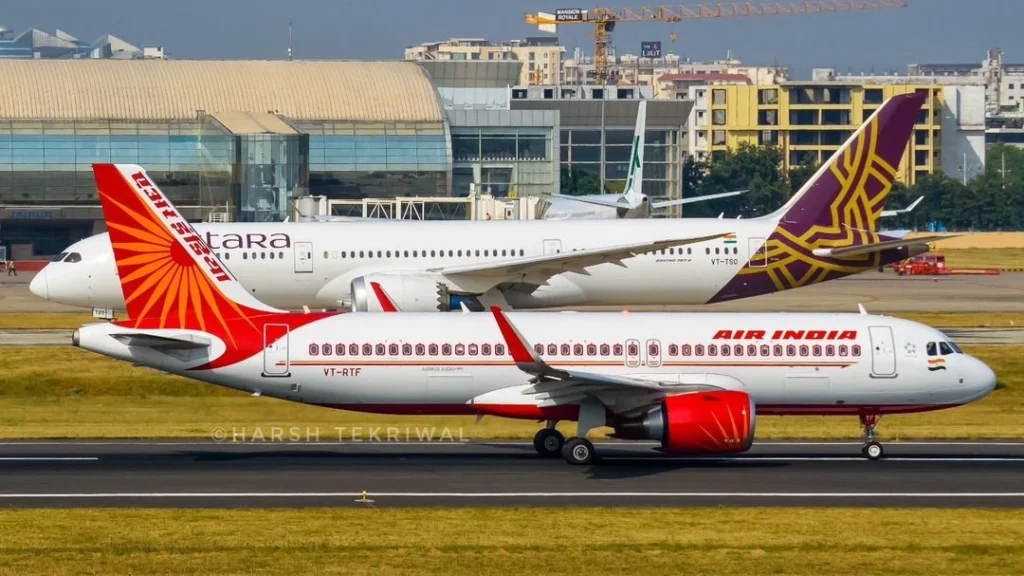
Гуруграм- Air India (AI) может понести дополнительные расходы в размере около 5029,2 млн. долл. Cr INR в течение следующих 12 месяцев из-за продолжающегося запрета Пакистана на использование индийского воздушного пространства, требуя компенсации от индийского правительства.
Запрет, введенный после того, как Индия приостановила действие Договора об Индских водах в ответ на смертельное нападение на туристов в Пахалгаме, Кашмир, вынудил индийские авиакомпании перенаправить международные рейсы, что повлияло на крупные центры, такие как Нью-Дели и пункты назначения по всей Европе и Северной Америке.
 Фото: Utkarsh Thakkar (Vimanspotter)
Фото: Utkarsh Thakkar (Vimanspotter)Air India ищет компенсацию в размере 5000 рупий
Решение Пакистана закрыть свое воздушное пространство для индийских перевозчиков, в том числе Air India (AI), связано с повышенной напряженностью после смертельного нападения на туристов в Кашмире 22 апреля 2025 года.
Запрет, вступивший в силу немедленно, вынуждает авиакомпании перенаправлять рейсы, что значительно влияет на дальние рейсы Air India в Европу, США и Канаду.
По оценкам Air India, ежегодный убыток составляет более 5029,2 крор ($600 млн), если запрет будет сохраняться в течение года, что обусловлено увеличением потребления топлива и увеличением времени полета.
Письмо авиакомпании в Министерство гражданской авиации от 27 апреля 2025 года подчеркивает непропорциональное влияние на Air India из-за ее обширной международной сети.
В письме отмечается: «Воздействие на Air India является максимальным из-за закрытия воздушного пространства, из-за дополнительного сжигания топлива... дополнительным экипажем. "
Это закрытие нарушает около 1200 рейсов из Нью-Дели (DEL) в Европу, Ближний Восток и Северную Америку только в апреле, выполняемых Air India, ее бюджетным подразделением Air India Express и конкурентом IndiGo (6E).
Air India, занимающая 26,5% рынка Индии, управляет более дальними маршрутами, чем IndiGo, что делает ее особенно уязвимой.
Принадлежащий Tata Group перевозчик, уже осуществляющий многомиллиардный оборот, сообщил о чистом убытке в размере 4 358,64 крор в 2023-2024 финансовом году при продажах в размере 385 572 крор.
Задержки с доставкой самолетов Boeing и Airbus еще больше сдерживают его рост, усугубляя финансовое напряжение от запрета воздушного пространства.
 Фото: Самолеты Мумбаи | Сиддх Дхури
Фото: Самолеты Мумбаи | Сиддх ДхуриОтвет правительства
Правительство Индии активно изучает решения для облегчения бремени авиационного сектора.
Источники указывают, что индийские перевозчики, в том числе Air India (AI), встретились с Министерством гражданской авиации, чтобы обсудить альтернативные варианты, такие как перенаправление рейсов по сложной местности вблизи Китая и введение налоговых льгот.
Письмо Air India специально запрашивало правительственную помощь в обеспечении разрешения на полеты у китайских властей, хотя детали остаются нераскрытыми.
Кроме того, Air India предложила перевозить дополнительных пилотов на рейсах в Соединенные Штаты и Канаду, чтобы управлять более длительным временем в пути.
Активное участие правительства последовало за его просьбой к авиакомпаниям оценить влияние запрета, а министр гражданской авиации Рам Мохан Найду подчеркнул минимальные нарушения для пассажиров.
 Фото: Lasta29 - Air India, B787-8 Dreamliner, VT-ANR, CC BY 2.0, https://commons.wikimedia.org/w/index.php?curid=40687689
Фото: Lasta29 - Air India, B787-8 Dreamliner, VT-ANR, CC BY 2.0, https://commons.wikimedia.org/w/index.php?curid=40687689Предыдущие прецеденты
Закрытие воздушного пространства вынуждает Air India (AI) перенаправлять рейсы, добавляя 15 минут к нескольким часам времени в пути.
Например, полеты из Нью-Дели на Ближний Восток теперь занимают примерно на час больше времени, снижая грузоподъемность и увеличивая расходы на топливо, которые составляют примерно 30% операционных расходов авиакомпании.
Сверхдальнемагистральные рейсы в Северную Америку прибегают к техническим остановкам в европейских аэропортах, таких как Копенгаген и Вена, для дозаправки или смены экипажа.
Пакистан уже не в первый раз вводит такой запрет. В 2019 году после авиаударов Балакота пятимесячное закрытие воздушного пространства обошлось индийским авиакомпаниям, включая Air India, примерно в 536,45 крор по текущим ставкам.
Air India несет основную тяжесть из-за своих обширных маршрутов на запад. Нынешний запрет, который продлится как минимум до 23 мая 2025 года, может привести к аналогичным или большим потерям в случае продления.
 Фото: avgeekwithlens/Harsh Tekriwal
Фото: avgeekwithlens/Harsh TekriwalПроблемы восстановления
Air India осуществляет многомиллиардный план реструктуризации после десятилетий государственной собственности.
Усилиям авиакомпании по модернизации своего флота уже препятствуют задержки поставок от Boeing и Airbus, что ограничивает ее возможности по расширению и адаптации к меняющимся требованиям маршрута.
В то время как Министерство гражданской авиации Индии еще не выпустило официальный ответ, в отчетах говорится, что политики изучают все возможные способы смягчить экономический удар. Долгосрочный успех этих усилий будет зависеть от дипломатического прогресса и оперативной гибкости.
Оставайтесь с нами. Следуйте за нами в социальных сетях для последних обновлений.
Присоединяйтесь к нам в Telegram Group для последних обновлений авиации. Следуйте за нами в Google News
Индия использует Пакистан для контроля над воздушным пространством
Air India ищет компенсацию в размере 5000 рупий на фоне запрета на воздушное пространство Пакистана, впервые появившегося на Aviation A2Z.













